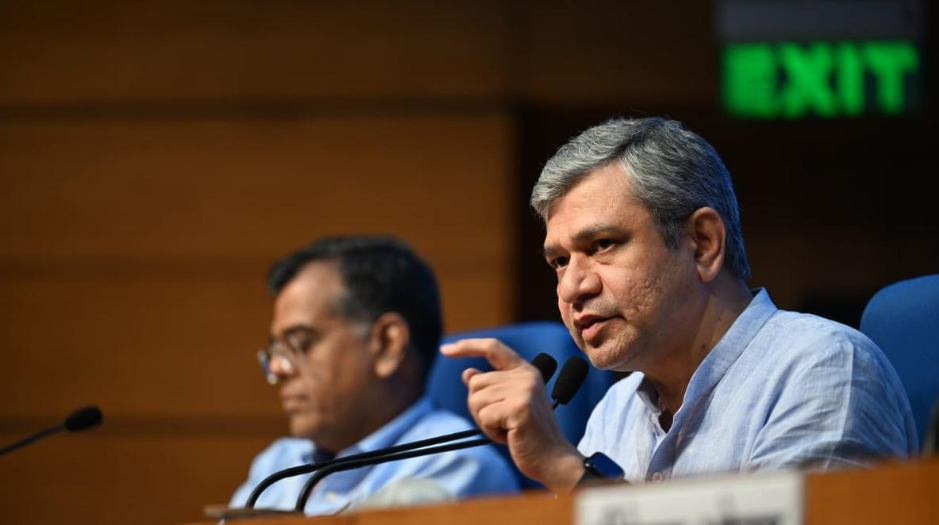Cabinet Approves Key Initiatives to Advance Biotech and Research in India (GS Paper 2, Government Policies)

Introduction
- On August 25, 2024, the Union Cabinet greenlit several pivotal initiatives aimed at boosting the biotechnology sector and advancing scientific research in India.
- The Cabinet approved the BioE3 Policy for High Performance Biomanufacturing and the merger of three umbrella schemes of the Department of Science and Technology (DST) into the unified 'Vigyan Dhara' programme.
Why This Matters
- These decisions reflect the government's commitment to enhancing India's research capabilities and biotechnology sector.
- The BioE3 Policy is designed to foster innovation and commercialisation in biomanufacturing, while the 'Vigyan Dhara' programme aims to streamline and strengthen science and technology infrastructure across the country.
BioE3 Policy for High Performance Biomanufacturing
Definition and Focus Areas
High-performance biomanufacturing refers to the production of a wide range of products, from medicines to materials, using advanced biotechnological processes. This includes addressing agricultural and food challenges and supporting the creation of bio-based products. The BioE3 Policy will concentrate on six strategic sectors:
- High-Value Bio-Based Chemicals, Biopolymers & Enzymes: Developing advanced materials and chemicals derived from biological sources.
- Smart Proteins & Functional Foods: Innovating in the production of protein-based foods and supplements that offer health benefits.
- Precision Biotherapeutics: Advancing therapies tailored to individual genetic profiles.
- Climate-Resilient Agriculture: Enhancing agricultural practices to withstand climate variability.
- Carbon Capture & Utilisation: Implementing technologies to capture and repurpose carbon emissions.
- Marine and Space Research: Expanding research into oceanic and extraterrestrial environments.
Key Features
The BioE3 Policy aims to:
- Foster innovation-driven R&D and entrepreneurship in various biotechnological sectors.
- Accelerate the development and commercialisation of new technologies through the creation of Biomanufacturing & Bio-AI hubs and Biofoundries.
- Support government initiatives such as the 'Net Zero' carbon economy and 'Lifestyle for Environment'.
- Drive India towards a 'Circular Bioeconomy' and 'Green Growth'.
- Contribute to the vision of a more sustainable, innovative, and responsive future, aligning with the Bio-vision for Viksit Bharat.
Significance
- The policy addresses critical societal challenges such as climate change, food security, and human health.
- It aims to build a resilient biomanufacturing ecosystem in India, fostering advanced innovations in bio-based products and technologies.
Vigyan Dhara Programme
Background
- The DST has been the central body for coordinating and promoting science and technology (S&T) activities in India.
- Previously, three central sector schemes were focused on different aspects of S&T: Institutional and Human Capacity Building, Research and Development, and Innovation and Technology Deployment.
Objectives and Implementation
The Cabinet's decision to merge these schemes into the 'Vigyan Dhara' programme aims to:
- Enhance S&T capacity building, research, and technology development.
- Strengthen the S&T infrastructure by establishing well-equipped R&D labs in academic institutions.
- Improve fund utilization and synchronize efforts across various S&T initiatives.
Funding
- The 'Vigyan Dhara' scheme will have an allocated outlay of Rs. 10,579.84 crore for the 15th Finance Commission period (2021-22 to 2025-26).
Significance of the Merger
- The integration of the schemes into 'Vigyan Dhara' is expected to improve efficiency in fund allocation and execution.
- The new programme will align with the DST’s five-year goals and the Anusandhan National Research Foundation (ANRF), contributing to the broader vision of Viksit Bharat 2047.
Conclusion
- The approval of the BioE3 Policy and the 'Vigyan Dhara' programme represents a significant leap forward for India’s biotechnology and research sectors.
- By focusing on high-performance biomanufacturing and consolidating S&T schemes, these initiatives are poised to enhance innovation, address critical challenges, and bolster India’s global standing in science and technology.
- The government's efforts to streamline and strengthen these sectors underline its commitment to advancing scientific research and fostering sustainable development.


